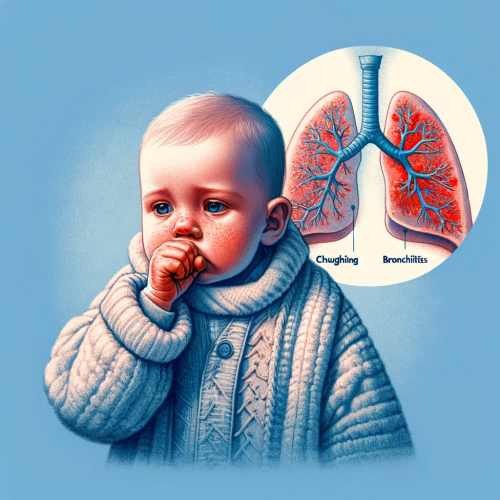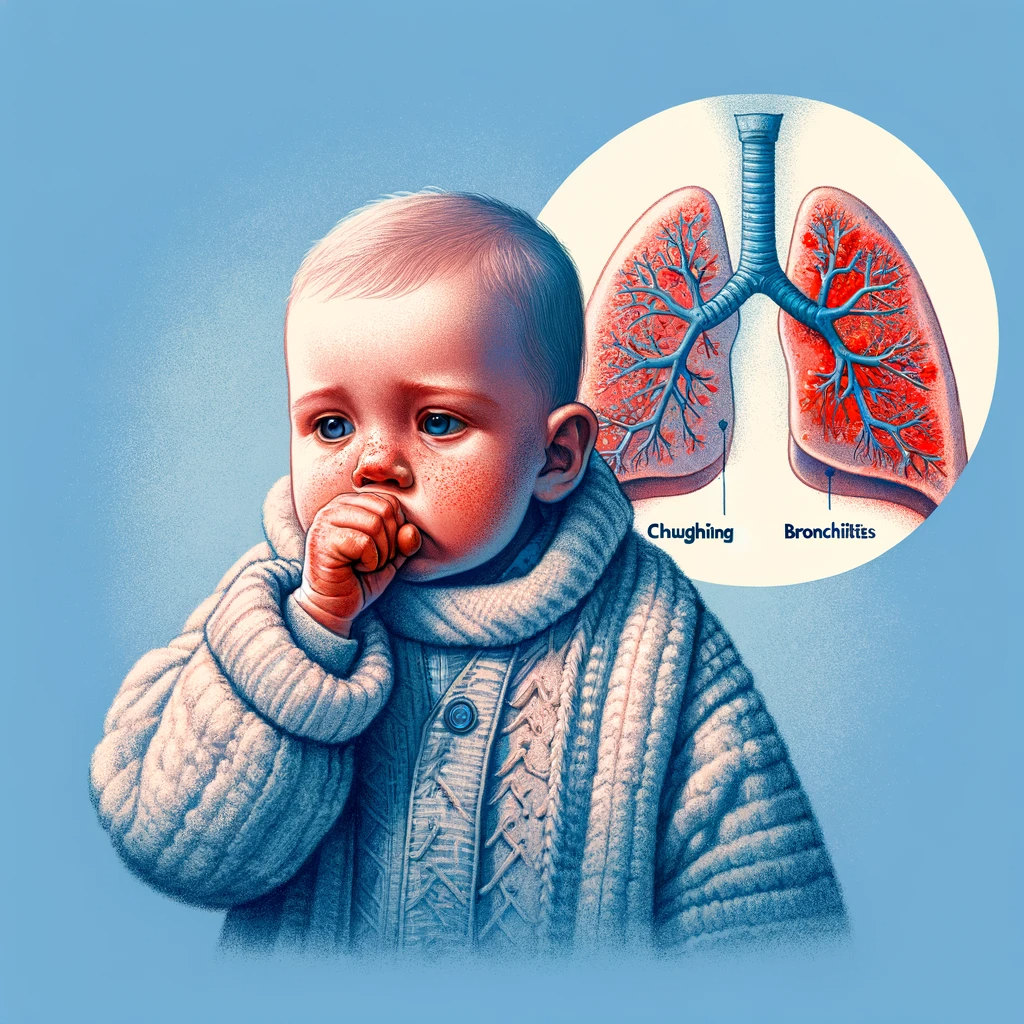
Bronchiolitis, a common respiratory condition primarily affecting infants and young children, often leads to questions and concerns among parents and caregivers. Among these is whether the condition can cause vomiting and the underlying reasons for this symptom. This article delves into the clinical aspects of this acute paediatric medical conditis, its association with vomiting, and the mechanisms behind this symptom.
Understanding Bronchiolitis
Bronchiolitis is an inflammatory respiratory condition predominantly seen in children under the age of two. It’s characterized by the inflammation of the bronchioles, the smallest air passages in the lungs. The condition is typically caused by viral infections, with the Respiratory Syncytial Virus (RSV) being the most common culprit. Other viruses such as rhinovirus, adenovirus, and influenza can also lead to the development of this viral illness in children.

Symptoms of Bronchiolitis
The clinical presentation includes:
- Coughing
- Wheezing
- Difficulty breathing or shortness of breath
- Nasal congestion
- Low-grade fever
Progression and Complications
While most cases of bronchiolitis are mild and self-limiting, severe cases may require hospitalization. Complications can include respiratory failure, dehydration, and secondary bacterial infections.
Bronchiolitis and Vomiting: The Connection
Vomiting is a symptom that can be concerning. It typically results from a combination of factors, such as:
1. Cough-Induced Vomiting
Intense coughing, a primary symptom of bronchiolitis, can trigger the gag reflex leading to vomiting. This reflex is more sensitive in infants and young children.
2. Mucus and Post-Nasal Drip
Excess mucus production and post-nasal drip, common in respiratory infections, can irritate the throat and stomach, resulting in vomiting.
3. Swallowing Difficulties
Infants with bronchiolitis often have trouble swallowing due to nasal congestion and respiratory distress, leading to gagging and vomiting.
4. Gastroesophageal Reflux
Infants may experience exacerbated symptoms of gastro-oesophageal reflux, which can contribute to vomiting.
Management of Vomiting in Bronchiolitis
While the condition primarily requires supportive care, managing vomiting is crucial to prevent dehydration. The following measures are recommended:
- Hydration: Offer small, frequent sips of fluids.
- Positioning: Keep the child in an upright position during and after feeding.
- Feeding Modifications: For infants, consider smaller, more frequent feeds.
- Monitoring: Watch for signs of dehydration, such as reduced urine output, dry mouth, and lethargy.
When to Seek Medical Attention
Immediate medical attention is necessary if the child:
- Shows signs of severe dehydration
- Has persistent, forceful vomiting
- Experiences breathing difficulties
- Appears lethargic or unresponsive
Vomiting in bronchiolitis is a symptom resulting from the body’s response to the viral infection and its associated respiratory distress. While often manageable at home, caregivers should be vigilant and seek medical advice when necessary. Understanding the connection between bronchiolitis and vomiting helps in providing appropriate care and alleviating concerns.
Article by Dr Tsanko Stefanov

